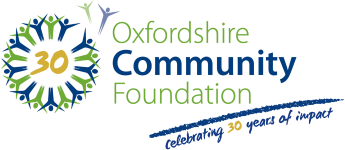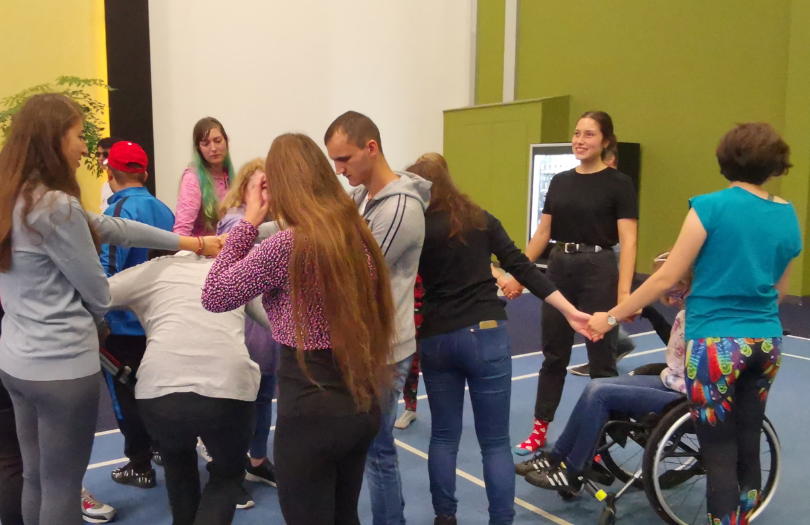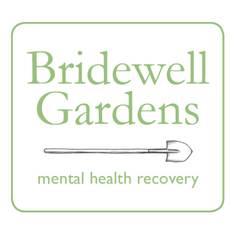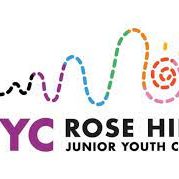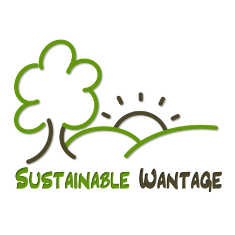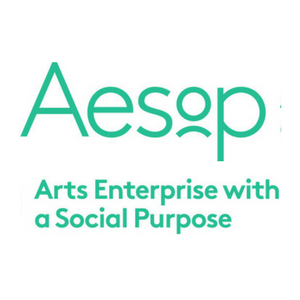Ikkaido offered disabled and non-disabled children (aged 8-11) and adults with learning disabilities a four week BOOST programme of health-enhancing activities to improve their holistic well-being. This approach to well-being encompasses physical, mental, emotional, social, nutritional, intellectual, and environmental health. Physical activity is a major part of the programme and disabled and non-disabled participants took part in the same sessions of adapted health-enhancing physical activity and inclusive martial arts.
The programme teaches the concept of well-being literacy, including how to monitor their wellness and develop their own well-being enhancing strategies to improve their mood. It also included private and monitored forums to allow disabled and non-disabled participants to connect and form meaningful relationships, as well as one-to-one tutor time.
BOOST used engaging and accessible cartoon characters and videos to guide learners through the programme. The characters were fully inclusive, with different genders, backgrounds and disabilities.
Funding in April 2021 from Oxfordshire County Council, Public Health aimed to improve or maintain mental health and raise awareness of the importance of mental well-being for Oxfordshire residents.
The NHS and the charity MIND have adopted the evidence based ‘5 steps to mental well-being’ that contribute to improving an individual’s mental health and well-being:
- connecting with other people
- being physically active
- learning new skills
- giving to others and
- paying attention to the present moment
Grants were awarded based on evidence of these 5 steps and / or the enablers identified in the Oxfordshire Mental Health Prevention Framework 2020-2023. Public Health were also keen to award grants to communities in need and encouraged partnership working. A grant of £13,645, for Ikkaido staff costs, allowed over 250 children and adults to take part in their BOOST programme.

The presence of a mentor inspired many beneficiaries to continue to use the wellness monitoring and planning techniques after the programme finished. The personal aspect of planning their own well-being activities meant that the positive impact was similar across different age groups, abilities and disabilities. The majority of children were also reported to have improved concentration levels which was enhancing their educational attainment. The improved happiness, behaviour and emotional management amongst children and adults with learning disabilities impacted positively on parents. Some expressed that the programme had been life-changing and had transformed their home life compared to during lockdown.
The mother of one participant said: “I can’t thank you enough for what you have done for me and my daughter. Watching her health decline over lockdown, her anxiety and depression increasing to the point where she was cutting herself, was the most painful thing I have ever experienced. I spent so long wishing I could take away the suffering – that there was some way that she could be happy again. Taking part in BOOST has changed our lives. The weekly session she has with her tutor has been particularly helpful and she has started talking and even laughing again. She is now managing her stress better and has not hurt herself since she began participating in the programme. The martial art sessions have inspired her to be more physically active and she even came up with the idea that students in school could go on a mile walk before class”
The children with disabilities all went to school by taxi just to sit down in a classroom straight away. Recognising the importance of physical activity, the pupils expressed that they wanted to walk more before school. Now whole year groups go on a mile walk before class with their teacher. This has been shown to improve their mood and even their ability to concentrate at school.
A large proportion of teachers and facilitators expressed witnessing BOOST gave them a clearer understanding of the issues faced by people with disabilities. By listening to the participants and their decisions on their own wellbeing programmes, they made several changes to the way they teach and support. This led to schools implementing measures including nature walks, mindful colouring, singing, jigsaw puzzles, learning a language and reading for pleasure inside and outside the school day.
“BOOST has impacted greatly on the structure of the school day and the way that we teach. Our class made the decision to introduce ‘reading for pleasure’, which was decided when we realised that intellectual well-being scored lowest amongst students. One boy responded particularly well to this, and now comes and leaves school every day with his head buried in a book. Reading is so important for young children, especially those with psychological disabilities, and we will continue to incorporate sessions like these into the school day.” Teacher of a young boy with autism.
Some schools involved older disabled children to support the younger children with the learning in the programme. As well as improving social connections and well-being, the older children gained a range of transferable soft skills that boosted their confidence greatly. They were incredibly pleased to have had the opportunity to improve the lives of children with similar well-being issues to themselves.
“It is an indescribable feeling to know you have helped so many children to overcome the issues that make them suffer most. Over lockdown I received so many heart-breaking testimonials from parents about the impact of lockdown and covid on their children’s health and wellbeing. For the longest time, I wanted to reach out to children that were like me and tell them that it was all going to be OK. I really feel like I have done that now, and I will work hard to do this as long as I can.” BOOST mentor and paraplegic wheelchair user.
Parents, carers and teachers realised that BOOST was extremely effective in identifying the specific causes of well-being issues amongst children. For example, one child’s evaluation demonstrated that they only experienced positive physical well-being due to regular exercise, but their mental, emotional, social, intellectual and environmental well-being scored very low. Through discussions with the mentor, the teacher was able to implement a plan to improve the child’s overall well-being in the long term.
Schools introduced BOOST and well-being at several assemblies and teachers also undertook their own well-being programme, setting targets and goals for themselves, especially in emotional, physical and nutritional well-being. The programme proved the importance of holistic well-being and created a community who are motivated and informed to make changes to improve their overall health and happiness.
